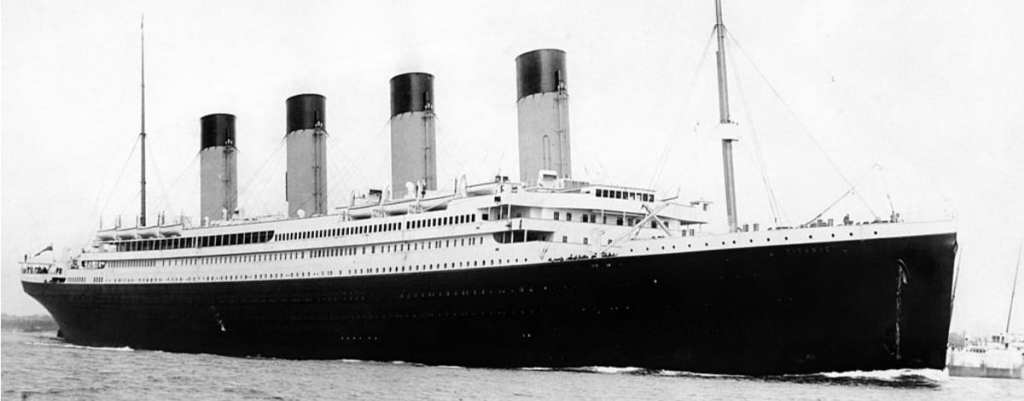The original poster on this Reddit thread used the example of the Titanic disaster – afterward, all ships were required to have enough lifeboat seating for every single soul on board.
But what are some other unspeakable tragedies that led to long overdue change? You’re about to find out!
#12. Emergency valves.
“After the reactor in Chernobyl blew up due to pressure build-up in the containment, all reactors worldwide were equipped with emergency valves to release pressure in order to maintain the integrity of the containment in a worst-case accident.”
#11. Written in blood.
“Just about every law that the Occupational Safety and Health Administration, (OSHA) has mandated is written in the blood of someone else’s mishap.”
#10. Safety codes.
“Triangle shirtwaist factory fire of 1911? In New York. They didn’t even have a ladder at the time that would reach the floors on fire. The water from the fire hoses could not reach the flames. The doors opened inward, instead of outward … so the people desperate to get out literally couldn’t open the door because of the weight of the people pushing against them.
Other doors were chained shut to prevent workers from taking breaks or pro union people sneaking in. The workers were squeezed in like sardines, there were no sprinklers at the time, the water wasn’t even turned on for the fire hose they had inside, people were smoking next to highly flammable fabric, the fire escape fell off of the building with people on it because it couldn’t handle the weight. They had never conducted a fire drill, ever.
Some of these were blatant code violations, others weren’t required at the time. But the deaths of 146 people, mostly teenage girls, with the youngest victim being just 11 years old …
Major changes to the fire safety codes of the time.”
#9. More fire safety.
“Laws mandating fire escape maintenance came about after an infamous incident in Boston in the 1970’s. There’s an iconic, Pulitzer-award photograph showing a woman & child falling off the side of a building after a fire escape fell off the building during a fire.
After I became a firefighter…I learned that pretty much every safety code in the NFPA manual is the result of someone dying.”
#8. Pollution.
“The EPA was formed as a direct result of Cleveland’s rivers being polluted to the point of catching on fire.”
#7. Fair warning.
“Certain commercial/utility trucks are now required to have an audible signal when the vehicle’s transmission is placed in reverse.
The relentless “beep-beep-beep” sound can be annoying, but it helps save lives after many accidents where someone was unaware a truck was backing up and accidentally got hit.”
#6. Like Breaking Bad, sorta
“The Tenerife disaster in which two 747s collided on the runway lead to many changes. Two of the most important were standardizing how pilots talk on the radio, firstly to ensure they all speak English and then to make sure they always use the correct words. Eg, the word “Takeoff” is only used when giving permission to take off, otherwise they will use “Departure”. The other innovation was Crew Resource Management, which teaches pilots not to always use the Captain as the sole decision maker and to work as a team instead. These innovations have saved millions of lives over the years.”
#5. On a lighter note.
“After 9/11, a lot of people started tuning in to the Food Network, as it was one of the few channels whose programming didn’t dedicate significant time to the attacks. The uptick in general viewership motivated Food Network to create more varied programming, rather than the previously homogenous “cook this simple dish in your kitchen” shows.
This is a bit more tangential than some of the other comments in here.”
#4. No one left behind.
“There were two American tourists who got left behind by a boat in the reefs outside of Queensland. Noone really knows what happened to them, but probably drowning and sharks.
Now all over Australia, they have a very clear set of rules to make sure everyone is on the boat back.”
#3. Filed through the city.
“After the Great Molasses Spill in Boston during the 1910s, the government got much stricter with calculations regarding anything that was being built in major cities, especially near high population density cities. Before this, you could kinda just get away with the engineer doing the calculations, and everyone else kinda just assumed they were correct. Now, all of the calculations done by engineers and architects are filed through the city before anything actually gets done.
If you don’t know what the spill was, a molasses tank (50 ft. tall, 90 ft. wide) that was holding like 2.3 million gallons of molasses burst due to cylindrical stresses on the container. Sounds hilarious in your head until you realize the molasses then flooded the streets at 35mph, killing more than 20 people and injuring like 150. Yikes.”
#2. Basic sanitary practices.
“After the disgusting conditions of the meat packing industry was exposed by the book The Jungle by Upston Sinclair the FDA was created to help ensure basic sanitary practices in the food industry as a whole.”
#1. Train barriers.
“In Singapore, an exchange student was waiting for the train when a crowd formed behind her and she ended up being pushed onto the tracks right when a train was arriving. The train cut off her legs. Since then, all Singapore train platforms have had barriers.”






